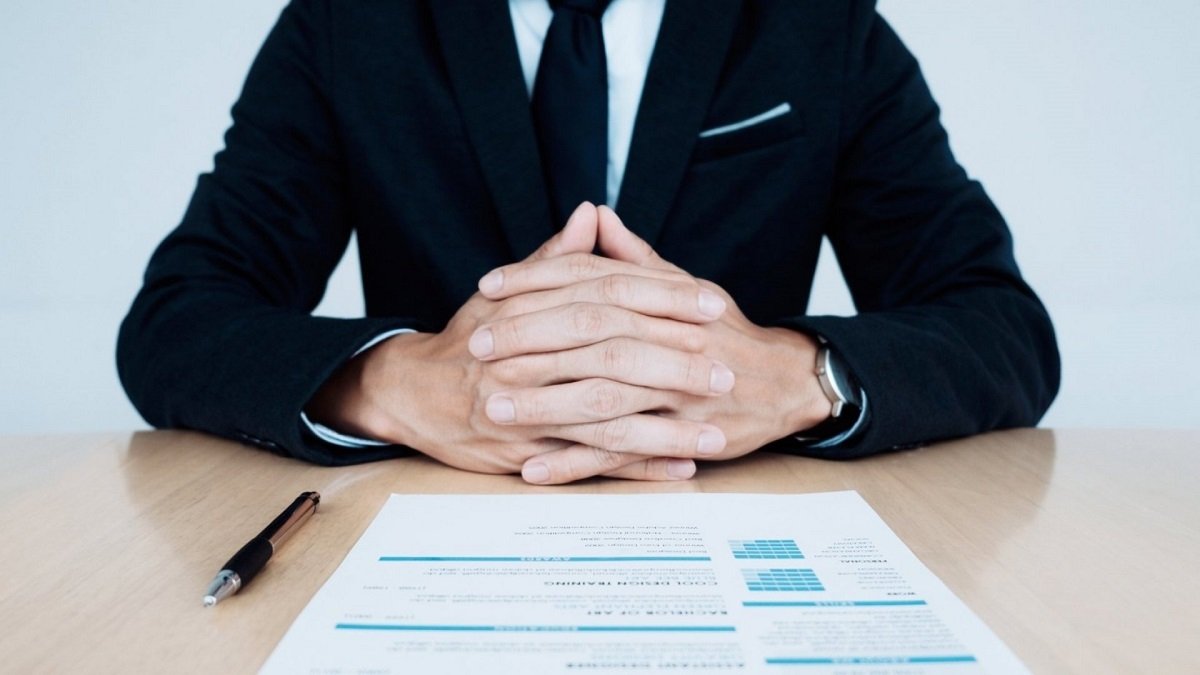Being well-prepared, on time, and genuine are essential tips to prepare for a job interview. Do your homework on the business, comprehend the position, and be prepared to highlight your qualifications. Be affable, truthful, and passionate during the interview. Send a thank-you message after the interview to address any unanswered questions.
A new job may open up a world of opportunities, but finding a job can be scary due to the pressure to display your experience, talents, and ability to create a good first impression. Even though the interview process might be intimidating, being well-prepared is essential to boosting your self-assurance and demonstrating why you’re the best applicant.
Tips For Preparing For A Job Interview

1. Know The Company
Researching the company is one of the tips to prepare for a job interview. Gaining knowledge about the firm you are interviewing with accomplishes two key goals. First of all, it makes sure that your beliefs, hobbies, and career objectives coincide with the company’s purpose and culture. Second, it demonstrates your thoughtfulness, preparation, and genuine desire to join their team if you can successfully use this information in an interview.
You may get ready by reading the website cover to cover, keeping an eye on their social media accounts, scanning Glassdoor for reviews, looking through the LinkedIn profiles of interviewees, and checking any intriguing or pertinent Google results. Make notes to assist you in crafting inquiries that show a genuine curiosity about the business and its operations.
2. Read The Job Description
To fully grasp how the business has outlined the role and the kind of applicant they are seeking, carefully read the job description. Examine the terms and phrases that the employer uses most often to express their expectations.
Your chances of impressing the interviewer increase with the degree to which you can match the job description with your credentials and experience. The job description could also provide you with some hints about the kinds of questions the interviewer might ask.
3. Prepare For Standard Questions
Preparation for common questions can be answered as to how to prepare for an interview. Having well-thought-out responses to interview questions is the best approach to learning how to ace an interview.
Even though you won’t be sure what will be asked, you may improve your chances of succeeding by preparing 50–100-word responses to frequently requested job interview questions. Be ready to respond to inquiries as:
- Why should we employ you?
- What is the greatest flaw about you?
- In five years, where do you see yourself?
- What would your former or present employer say about you if I called them?
- Describe a difficulty you have overcome for me.
4. Prepare Questions From Your End
Do you recall how you looked over the job description and did some research on the company? This particular preparation work is going to assist in demonstrating that you’re not simply someone who happened to drop by on a haphazard and indiscriminate job quest, but rather that you’re interested in this particular position for this precise organization.
You should take advantage of the chance to ask your questions, which you will probably be given at some point throughout the interview. Ask intelligent questions to show that you’re interested in the role and the firm, that you’re keen to learn, and that you have a broad idea of their needs and operations. Think of inquiries such as these:
- What would a normal day in this role entail?
- What problems may this job assist with?
- Could you provide some instances of the kinds of projects that someone in this position would work on?
- Which KPIs or indicators may be used to measure this role’s success?
- Is the firm presently focused on any particular items or objectives?
5. Attend To The Details
Taking care of your details is one of the tips to prepare for a job interview. You shouldn’t find out that your internet connection isn’t powerful enough to enable a videoconference, or that Jefferson Street and Jefferson Avenue are two different places, on the morning of the interview.
Make a detailed route plan for getting from your house to the interview site if it’s an in-person interview. A visit to the location a day or two before the interview will provide you with information regarding parking and bus stops, construction, and commute times. Find a park or coffee shop nearby where you may wait if you arrive early for the interview.
If the interview is conducted over the phone or via video, check your computer’s functionality and the strength of your internet connection. Select a calm area for the interview and eliminate any potential sources of distraction by turning off your computer, putting away odd items from your desk, etc.
Additionally, confirm that the login for your videoconferencing is working correctly. You want to be as composed as possible before your interview since technical difficulties might be rather stressful.
6. Practice
Being confident is essential for acing an interview. Practice is the best approach to improving your interviewing abilities, even if it can seem ridiculous at first. Arrange a video conference or meet with a friend or relative to serve as the recruiting manager or interviewer.
Give a brief overview of your professional background, respond to their inquiries, and become comfortable posing your inquiries. Improve both the words you speak and the way you express them. Do you sound anxious? What message are you sending with your body language?
Are you babbling or speaking too quickly? Make sure the person conducting your fake interview knows how important constructive criticism is to your career. Ask them open-ended questions about your progress and areas for improvement. It is one of the essential tips to prepare for a job interview.
7. Dress Properly
You should dress well for an interview in business clothes. Trying to seem more put together than you would at work is a good idea. For everyone, slacks and a classy shirt are suitable.
Don’t leave this aspect of your preparation until the day of the interview; you could have a few go-to interview clothes. Make sure the clothes fit and aren’t wrinkled by taking everything out. Arrange shoes and any accessories. On interview day, you’ll be able to quickly grab and leave.
Make sure your phone, keys, portfolio, additional copies of your resume, and any other relevant items are prepared to go while you’re at it. You’ll sleep easier at night knowing that you’re ready.
8. Be On Time
Being on time is one answer to how to prepare for an interview. Being on time is one of the few areas of the interview process that you have almost total control over. It’s best to err on the side of being excessively early, particularly for in-person interviews where traffic may become an issue. You never know when an accident or diversion may provide a challenge.
If it’s a remote interview, be ready for the interview well in advance. This includes testing your equipment and being properly clothed.
9. Relax
You’ve looked into this. You’ve had practice. You’re ready for this. You look nice and arrive early. You’re likely anxious. That is typical. Make the most of your early arrival by relaxing your jaw, lifting your shoulders, and taking several deep breaths.
Think about the fact that many of the physiological sensations of excitement and nervousness are similar. Reframe your nervousness as hopeful expectations. Take a few quiet minutes to go over any notes you’ve made, tell yourself you’ve done the best you can to prepare, and project confidence. You’re as prepared as you can ever be, after all.
Various Types Of Interviews
There are several forms of interviews for jobs and tips to prepare for a job interview. You may be able to get the job by doing well in only one of these situations. In some cases, you could have to go through many interview styles throughout the application process, especially with major graduate companies.
Face-to-face: The conventional interview format, which is still widely used today. When you visit the employer’s office, a panel or an individual will interview you about your fitness for the position. Tests and exercises may come before or after in-person interviews, which typically take between 45 and two hours. Both competency- and strength-based questions are possible.
Telephone Interviews: Employers often use it early in the application process to weed out a huge number of candidates. In most cases, if you are selected, you will be asked to attend an assessment center or an in-person interview. A phone interview should allow for around 30 minutes.
Video Interviews: Growing in popularity with major organizations, especially for graduate program applicants. Video interviews typically run 30 minutes and may be either live or pre-recorded.
Assessment centers: They provide companies with the opportunity to compare the performance of several applicants at once and last for the whole day. Together with other candidates, you will participate in activities like team building exercises, psychometric testing, and presentations in an assessment center.
FAQ
Q: How can one best prepare for and ace a job interview?
A: Preparing for a job interview is the best way to ace it. Examine the business and its sector, comprehend the position, and be prepared to discuss how your qualifications and experiences make you the best person for the job.
Q: How can I wow an interviewer with my words?
A: Communicate your abilities and experiences with confidence to impress the interviewer. To demonstrate your dependability and trustworthiness, use expressions like “I’m sure you’ll hear that from several people when you check my references.”
Q: How should I proceed after the interview?
A: It’s crucial to send a thank-you message shortly after the interview. Make sure to provide the answers to any questions you were unable to address during the interview in your subsequent correspondence.











